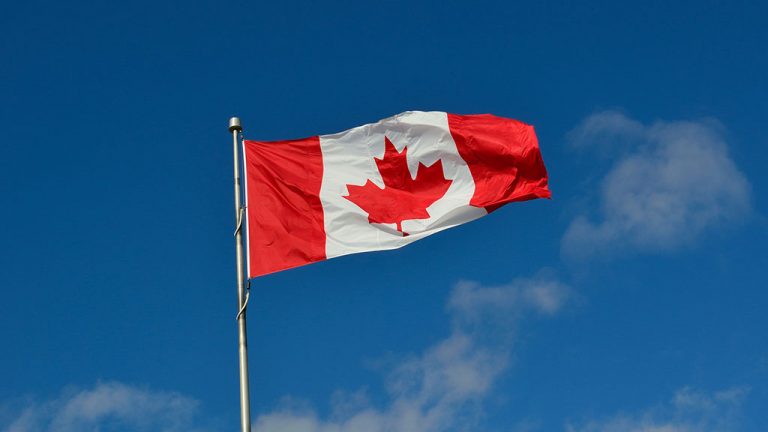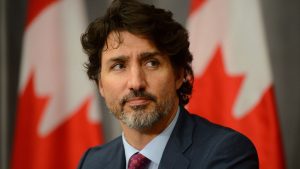OTTAWA — The union representing locked-out port workers in British Columbia is planning a court challenge after the federal government moved to end the work stoppage. ��
Labour Minister Steven MacKinnon intervened Tuesday to end lockouts at ports in both British Columbia and Montreal, directing the Canada Industrial Relations Board to order the resumption of all operations and move the talks to binding arbitration.��
In B.C., the International Longshore and Warehouse Union Ship & Dock Foremen Local 514 called the government’s move an insult to the union and to workers’ bargaining rights. ��
“We will fight this order in the courts. We will fight the arbitrated forced contract in the courts,” said Frank Morena, president of the local, in a press release. ��
Port workers in British Columbia were locked out last week amid a labour dispute involving more than 700 longshore supervisors, halting container cargo traffic at terminals on the West Coast.��
Across the country, the Maritime Employers Association locked out 1,200 longshore workers at the Port of Montreal on Sunday night after workers voted to reject what employers called a final contract offer.��
The labour minister said Tuesday the negotiations had reached an impasse, with the work stoppages impacting supply chains, thousands of jobs, and Canada’s reputation as a reliable trading partner.��
“Negotiated agreements are the best way forward, but we must not allow other Canadians to suffer when certain parties do not fulfil their responsibility to reach an agreement,” MacKinnon said in a statement announcing the decision.��
“It is my duty and responsibility to act in the interest of businesses, workers, farmers, families and all Canadians.”��
MacKinnon said he hopes operations at the ports can be restored in a matter of days.��
The B.C. union’s announcement comes after Teamsters Canada launched a challenge of Ottawa’s intervention using the same mechanism in a countrywide rail work stoppage earlier this year. ��
Labour experts have warned that the government’s decision to intervene in these disputes could set a dangerous precedent that undermines workers’ rights.��
“It further erodes employers’ incentives to reach agreements at the bargaining table, because it reinforces the idea that they can just drag things out and wait for government intervention to fix their problems for them,” said Barry Eidlin, an associate professor of sociology at McGill University.��
“The aim of the lockout was not to pressure the workers; it was to pressure the government to intervene.”��
Business groups had been calling for government intervention to get the flow of goods moving again, with the current disputes just the latest in a number of recent supply chain disruptions that they say are harmful to the Canadian economy.��
Greater Vancouver Board of Trade president Bridgitte Anderson said in a statement Tuesday that an “estimated $6.1 billion of trade was disrupted in B.C. ports alone, with impacts rippling across key sectors nationwide.”��
“The economic toll of the fourth major disruption to our supply chains has been severe,” she said.��
Several unions on Tuesday denounced the government’s decision to intervene.��
The Quebec branch of the Canadian Union of Public Employees, which represents the nearly 1,200 dockworkers at Montreal’s port, called it a “dark day for workers’ rights.”��
“The right to collective bargaining is a constitutional right,” the union said in a news release in French.��
The Teamsters also weighed in, saying the minister’s decision goes against Charter rights. ��
“Unions will fight this to the end,” said Teamsters Canada national president François Laporte in a statement.��
The federal NDP echoed the unions’ criticism, accusing Ottawa of overriding union rights and caving to corporate interests.��
Alison Braley-Rattai, an associate professor of labour at Brock University, said the mechanism used by MacKinnon allows the government to evade the process of passing back-to-work legislation, meaning they don’t have to rely on the support of other parties in the House of Commons.��
“What we are seeing now, at least in the federal sector, appears very cynical,” she said in an email, with employers precipitating a work stoppage so they can ask the government to impose arbitration.��
There are consequences to the government intervening in labour disputes, Braley-Rattai added — if employers believe they can use lockouts to get binding arbitration, they might be incentivized to drag out negotiations “to the point where a lockout appears like the obvious next step.”��
“Continual reliance upon binding arbitration may make it more difficult for the parties to actually reach their own negotiated settlements in the future,” she said.��
“Governments, then, should exercise restraint with regard to intervention.”��
At a news conference Tuesday, MacKinnon said he doesn’t take lightly the decision to intervene in the collective bargaining process, but the talks were all at an impasse without an immediate way forward. That made the duration of the stoppage unclear and created real economic risk, he said.��
“And Canadians have limited tolerance right now for economic self-harm,” he said.��
The Greater Vancouver Board of Trade and the Canadian Federation of Independent Business expressed relief at the government’s intervention. However, both said it’s clear a longer-term solution is needed to avoid future disruptions.��
The current disputes come less than a year and a half after different workers at most B.C. port terminals went on strike for 13 days in July 2023.��
Earlier this year, the government announced an inquiry into that strike to prevent economic disruptions on that scale.��
MacKinnon reiterated the need for long-term solutions.��
“It is our government’s responsibility to ensure industrial peace,” he said.��
The CFIB on Tuesday called for the government to designate ports as essential so they aren’t subject to such stoppages in the future.��
©2024 The Canadian Press










Recent Comments
comments for this post are closed